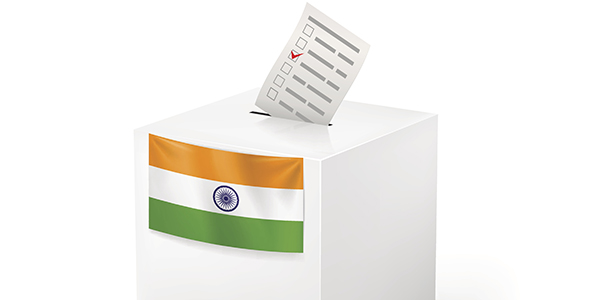A CONSCIENCE VOTE

|
|
A CONSCIENCE VOTE
|
| As the day of reckoning draws closer, many in the Muslim community are finding themselves in a predicament. Shahid Siddiqui, ex-member of the Rajya Sabha, likes to think: they are unsure, confused and fearful of their future. “Who should we vote for in 2014?” is the question they often ask. Three Muslim Presidents, four Chief Justices of the Supreme Court, one Chief Election Commissioner, one Chief of Air Staff, an Intelligence Bureau Chief, a sitting Vice-President and a serving Foreign Minister later, if the Muslims of India are still uncertain about their future, then their fears marginalize the enormous contributions fellow Muslims have made in India’s narrative. “Hindus and Muslims cannot live together.” That's the crux of Pakistan’s longstanding love affair with the “Two Nation Theory.” While Mohammad Ali Jinnah skillfully exploited the ploy to secure Pakistan for the Muslims, the same theory can’t form the basis upon which to call India a Hindu State. Birthplace to some of the greatest religions on earth, India is and will, forever, remain a benevolent abode for the peoples of all faiths. That Muslims living in India are fearful about their future, is a dangerous construct. It deserves our collective repudiation. In a multi-ethnic, multi-religious conglomeration, ‘Secularism’ is an indispensable component that supports democratic values of governance. But, nowhere is that term more fiercely exploited than in India. Divorced from its true meaning - separation of religion and state - it has been transformed in to a formidable tool called appeasement with which the ruling party wields influence over the minority vote. Decades of mischaracterization and misapplication of secularism, the party has used religion as its vote-bank currency to manipulate the unsuspecting for its political advantage and survival. Myopic vision, projecting Muslims as victims of discrimination, allegedly at the hands of ‘Hindu Terrorists,’ and discounting Hindu interests, remains at the heart of country’s internal discord. Many even believe, India has become the poster child for what secular democracy ought not to be. India is polarizing. Fanaticism is pervasive and signs of religious discord are all around us. Being the largest democracy isn’t good enough; India needs to be the greatest democracy on earth. With general elections on the horizon, anti-incumbency fervor is gesturing ominous results for the ruling coalition. Narendra Modi’s rising popularity has all the ingredients that could, for the greater good of the country, awaken the Hindu vote and disrupt the symbiotic relationship that exists between "the benefactor" and "the beneficiary." Breaking free from the stranglehold of vote-bank politics isn't easy, particularly for those who are accustomed to a higher level of appeasement. But returning the country to its defining values, of democracy and secularism, necessitates sacrifice and discipline to not let the seeds of appeasement germinate, thus frustrating the designs of unscrupulous political parties who are forever ready to harvest the vote-crop to keep themselves well-fed and the rest exploited. For our nation to remain viable, a monumental decision awaits all Indians: either subscribe to a unified vision of a nation devoid of quotas, corruption, nepotism and dynastic rule or vote for the party that embraces the British legacy of ‘divide and rule,’ to keep the nation in turmoil for its political fortunes. Inaugural address by the US President, John F. Kennedy, comes to mind. “And so, my fellow Americans: ask not what your country can do for you—ask what you can do for your country,” were his famous words. Hidden somewhere between those lines lays the answer to: “Who should we vote for in 2014?” You can view more articles at the author's Blog at: http://ravimunshi.blogspot.com |
| |
| Copyrights © 2007 Shehjar online and KashmirGroup.com. Any content, including but not limited to text, software, music, sound, photographs, video, graphics or other material contained may not be modified, copied, reproduced, republished, uploaded, posted, or distributed in any form or context without written permission. Terms & Conditions. The views expressed are solely the author's and not necessarily the views of Shehjar or its owners. Content and posts from such authors are provided "AS IS", with no warranties, and confer no rights. The material and information provided iare for general information only and should not, in any respect, be relied on as professional advice. Neither Shehjar.kashmirgroup.com nor kashmirgroup.com represent or endorse the accuracy or reliability of any advice, opinion, statement, or other information displayed, uploaded, or distributed through the Service by any user, information provider or any other person or entity. You acknowledge that any reliance upon any such opinion, advice, statement, memorandum, or information shall be at your sole risk. |
